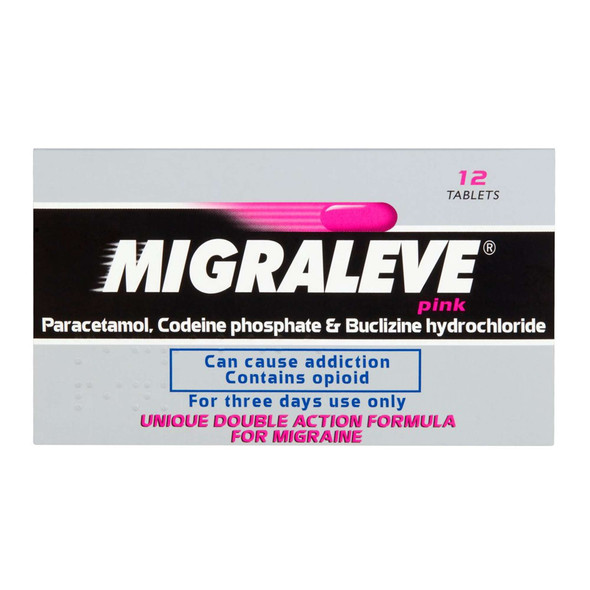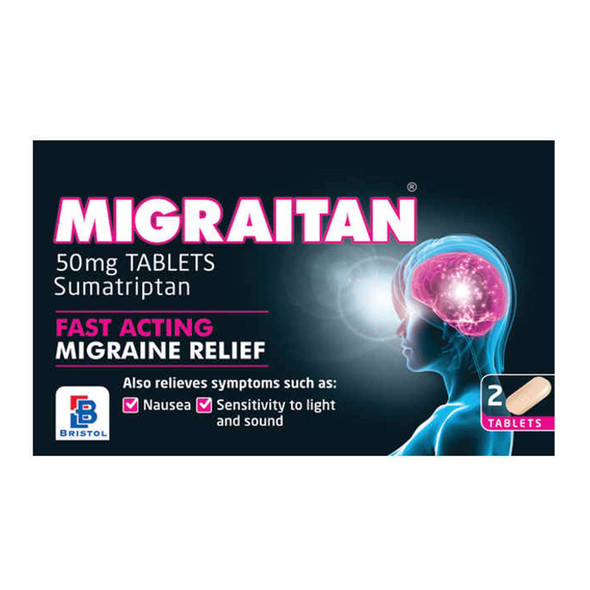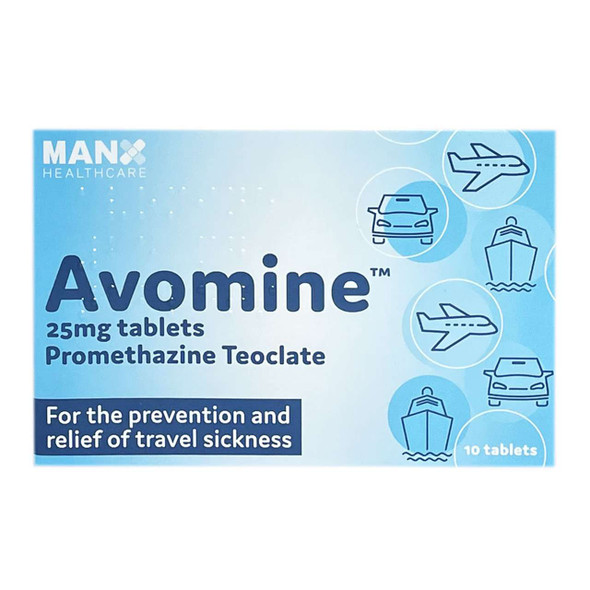- Product
- Qty in Cart
- Quantity
- Price
- Subtotal
-

Scopoderm Travel Sickness 2 Patches
Baxter£28.79These patches are used to prevent the symptoms of motion sickness such as nausea, vomiting and vertigo, which can occur when travelling Suitable for adults and children over 10 years Do not use during pregnancy and breast-feeding unless your doctor...Qty in Cart: 0Price:£28.79Subtotal: -

Kwells Travel Sickness 12 Tablets
Kwells£4.89Kwells Travel Sickness 12 Tablets are the perfect solution for those who suffer from motion sickness. Whether you're traveling by car, plane, or boat, these tablets can help relieve nausea, dizziness, and vomiting associated with motion sickness. The...Qty in Cart: 0Price:£4.89Subtotal: -

Noumed Promethazine Hydrochloride 56 Tablets
Noumed£9.64These tablets are for the short term use in adults with difficulty sleeping; for treatment of allergic conditions; for short term use as sedative in children ages 5 years and older and for the prevention of travel sickness. Not recommended for...Qty in Cart: 0Price:£9.64Subtotal: -

Avomine Travel Sickness Promethazine 25mg 28 Tablets
Avomine£10.09Avomine Travel Sickness Promethazine 25mg 28 Tablets by Avomine are designed to alleviate symptoms of motion sickness during travel. These tablets contain promethazine as the active ingredient, which helps relieve nausea, vomiting, and dizziness...Qty in Cart: 0Price:£10.09Subtotal: -

Migraleve Pink Tablets 24
Migraleve£8.69Migraleve Pink Tablets 24 are a reliable and effective solution for aches and pains. Manufactured by Migraleve, these tablets provide quick relief from migraines and tension headaches. Each pack contains 24 tablets, making it convenient for on-the-go...Qty in Cart: 0Price:£8.69Subtotal: -

Pepto Bismol Liquid
Pepto Bismol£10.53Pepto-Bismol is an effective treatment for an upset stomach, providing fast relief of nausea, indigestion and heartburn For adults and children 16 years and over You should not take Pepto-Bismol liquid if you’re pregnant or...Qty in Cart: 0Price:£10.53Subtotal: -

Numark Travel Sickness Relief 25 Microgram 10 Tablets
Numark£3.99Experience relief from travel sickness with Numark Travel Sickness Relief 25 Microgram 10 Tablets. These tablets are specifically designed to alleviate symptoms of nausea and dizziness associated with motion sickness. Each tablet contains 25 micrograms...Qty in Cart: 0Price:£3.99Subtotal: -

Avomine 25mg 60 Tablets
Avomine£23.79Avomine 25mg 60 Tablets by Avomine brand are a popular choice for combating motion sickness, nausea, and vomiting. These tablets contain 25mg of the active ingredient promethazine hydrochloride, which helps to alleviate symptoms related to digestion...Qty in Cart: 0Price:£23.79Subtotal: -

Buscopan Cramps 20 Tablets
Buscopan£10.39Buscopan Cramps 20 Tablets are a trusted and effective solution for relieving stomach cramps and discomfort. These tablets are formulated by Buscopan, a leading brand in the Digestion category. Each tablet contains Hyoscine Butylbromide, a well-known...Qty in Cart: 0Price:£10.39Subtotal: -

Migraleve Pink Tablets 12
Migraleve£5.39Migraleve Pink Tablets 12 offer effective relief from headaches and migraines. These tablets belong to the 'Aches & Pains' category and are specifically designed to target migraine symptoms. Manufactured by the reputable brand Migraleve, each pack...Qty in Cart: 0Price:£5.39Subtotal: -

Migraleve Complete Tablets 24
Migraleve£9.19Migraleve Complete Tablets 24 are a trusted remedy for migraines and headaches in the Aches & Pains category. Manufactured by Migraleve, these tablets provide fast and effective relief from symptoms such as throbbing head pain, nausea, and...Qty in Cart: 0Price:£9.19Subtotal: -

Migraleve Complete Tablets 12
Migraleve£5.79Experience relief from migraines and headaches with Migraleve Complete Tablets 12 by Migraleve. These tablets are specifically formulated to help alleviate the symptoms associated with migraines, including pain, nausea, and sensitivity to light and sound...Qty in Cart: 0Price:£5.79Subtotal: -

Migraitan Tablets 2
Migraitan£7.19Migraitan Tablets will effectively treat migraines, which involves the temporary swelling of blood vessels in the head caused by a chemical imbalance. This medicine corrects this imbalance, whereby relieving the the headache, throbbing, nausea and...Qty in Cart: 0Price:£7.19Subtotal: -

Kwells Kids 12 Tablets
Kwells£4.89Kwells Kids 12 Tablets by Kwells are a trusted solution for digestive discomfort in children. Each tablet is specially formulated to provide fast-acting relief from nausea, vomiting, and dizziness. These easy-to-take tablets are suitable for children...Qty in Cart: 0Price:£4.89Subtotal: -

Eno Salts 150g
Enos£7.49Enos Original will give you fast acting relief from stomach upsets. The formula neutralises stomach acid, to quickly relieve discomfort. Help you manage indigestion, flatulence and nausea Do not use if pregnant or breastfeeding Do not use if under...Qty in Cart: 0Price:£7.49Subtotal: -

Avomine Travel Sickness Promethazine 25mg 10 Tablets
Avomine£3.09Avomine Travel Sickness Promethazine 25mg 10 Tablets are specifically designed to alleviate symptoms of motion sickness while traveling. These tablets contain 25mg of Promethazine, a highly effective anti-nausea medication. Avomine tablets are easy to...Qty in Cart: 0Price:£3.09Subtotal:
Common Causes of Nausea
The causes of nausea are diverse, ranging from temporary discomforts to chronic health issues. One of the most frequent triggers is motion sickness, which occurs when the brain receives conflicting signals from the inner ear, eyes, and other sensory systems about movement. Pregnancy, particularly in the first trimester, is another common cause, with hormonal changes leading to what is often referred to as "morning sickness."
Gastrointestinal disturbances, such as food poisoning, indigestion, or stomach viruses, are also major contributors to nausea. In other cases, it may stem from more serious medical conditions, such as migraines, inner ear disorders, or even kidney or liver diseases. Certain medications, including chemotherapy drugs and strong painkillers, list nausea as a side effect. Psychological factors, such as stress, anxiety, and even phobias, can also play a significant role in triggering this unsettling symptom.
Symptoms Associated with Nausea
Nausea often comes with other symptoms that can help identify its cause. For example, if the nausea is related to food poisoning, it may be accompanied by abdominal cramps, diarrhoea, or a fever. In cases of motion sickness, a person might also experience dizziness, sweating, and an overall feeling of disorientation. If nausea is caused by a migraine, it is often accompanied by sensitivity to light and sound, as well as severe throbbing pain on one side of the head.
Sometimes, nausea is linked to emotional or psychological factors. Anxiety and stress can trigger the feeling of nausea, as can certain mental health conditions such as depression. In these instances, nausea is often accompanied by a sense of unease, racing thoughts, or even a feeling of dread. Understanding the broader context of the symptoms can often help to pinpoint the underlying cause of nausea.
When to Seek Medical Help
For most people, nausea is a temporary discomfort that resolves on its own. However, persistent or severe nausea can indicate a more serious health issue. If nausea lasts for more than a couple of days or is accompanied by symptoms such as severe abdominal pain, high fever, vomiting blood, or dehydration, it is essential to seek medical attention. Additionally, if nausea is paired with chest pain, difficulty breathing, or fainting, it is crucial to get emergency help immediately, as these could be signs of a life-threatening condition.
For those who frequently experience nausea without a clear cause, or if the condition disrupts daily life, a visit to a healthcare professional is advisable. A doctor will likely conduct tests, review medical history, and potentially refer the patient for further investigations to determine the root cause.
Managing Nausea: Home Remedies and Treatments
For mild or occasional nausea, there are several remedies and lifestyle changes that can help manage the discomfort. Resting in a comfortable, quiet place and avoiding strong smells or triggers that make the nausea worse can be beneficial. Drinking ginger tea or sucking on ginger candies is a well-known remedy, as ginger has natural anti-nausea properties. Peppermint tea or sucking on peppermint lozenges can also help soothe the stomach.
Staying hydrated is important, particularly if nausea leads to vomiting, as this can cause dehydration. Sipping small amounts of water, clear broths, or oral rehydration solutions can help prevent this. Eating light, bland foods, such as crackers, toast, or rice, may also help settle the stomach. It is generally advisable to avoid heavy, greasy, or spicy foods, as these can exacerbate nausea.
In cases where nausea is more severe, medications may be prescribed. Anti-nausea medications such as antihistamines or serotonin antagonists can help alleviate symptoms. If nausea is caused by an underlying condition, treating that condition directly will often help resolve the nausea as well. For example, if the nausea is linked to an infection, antibiotics or antivirals may be necessary.
Conclusion
Nausea is a common and often temporary condition that can result from a variety of causes, including gastrointestinal issues, motion sickness, migraines, or even stress. While it is usually not a cause for concern, persistent or severe nausea may signal a more serious health problem that requires medical attention. Understanding the underlying cause and seeking appropriate treatment, whether through home remedies or medical intervention, is key to managing this discomfort. If nausea persists or is accompanied by alarming symptoms, it is important to seek professional advice to ensure proper care and treatment.

